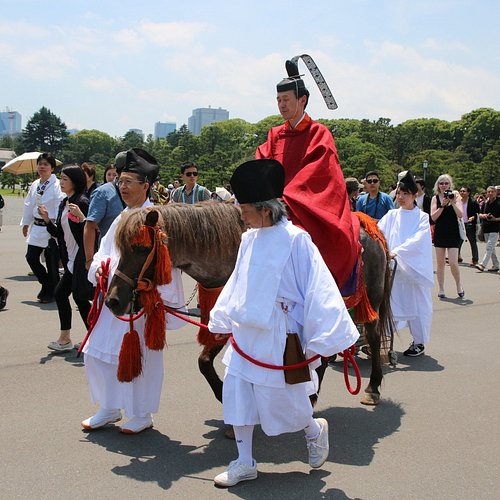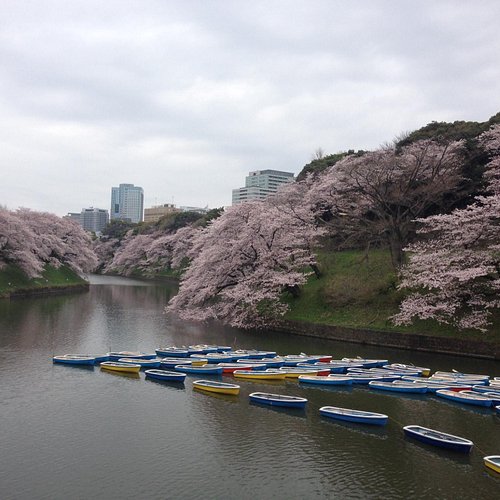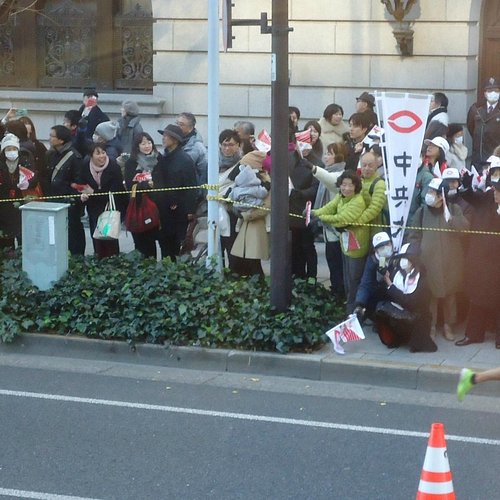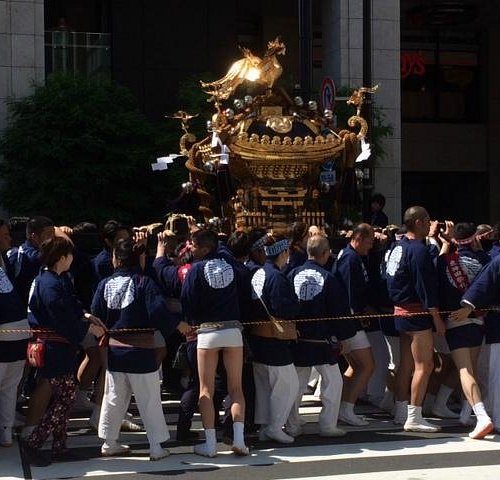Top 8 Events in Chiyoda, Kanto
Chiyoda is located in Central Tokyo.This popular ward attracts visitors with views of the Imperial Palace, which takes up 12% of the ward! For travelers who love a good play, this ward houses one of the largest performing arts theaters in Tokyo, which contains nearly 3,000 seats. While you're there, take a walk over the most photographed bridge in Japan--the Nijubashi Bridge--and enjoy the whimsical backdrop, which includes a breath-taking view of the Palace. There on a honeymoon? Try eating out at one of many restaurants located in the Ekimae Plaza Building.
Restaurants in Chiyoda
1. Marunouchi Illumination
Overall Ratings
4.5 based on 103 reviews
The Illumination along Nakadori in Marunouchi runs from November to February every year and reflects the style and classy atmosphere of the surrounding neighbourhood. There are few gimmicks and the organisers rise above the continuing arms-race in Tokyo Illuminations with an understated display that complements Nakadori's European-style boulevard. The many trees along Nakadori are tastefully lit with eco-friendly LED bulbs, bathing the area in the signature 'champagne gold' colour that says everything about the luxury designer shops and financial powerhouses lining the street. The flagstones and cobbles, the sophisticated sculpture, the myriad of shopping and dining complexes, art galleries, luxury hotels and mixture of glitz with classical facades all conceal what used to be a rather staid and conservative business district. Before that, Marunouchi ('within the enclosure') was within the outer moat of Edo Castle and was the home of the most powerful feudal lords during the Edo period.
2. Sanno Matsuri
Overall Ratings
4.5 based on 26 reviews
One of Japan's largest and oldest festivals, dating back to the 1600s, the Sanno Matsuri is held every other year. Its main procession, the jinkosai, starts in the early morning at the Hie-jinja shrine and returns in the evening, after traversing much of central Tokyo. It includes hundreds of people in traditional dress and ancient costume in a parade of portable shrines (mikoshi) emblazoned with phoenixes, alongside people on horseback, floats, drummers, and more. Enjoy cultural activities like tea ceremony and flower arrangement around town, purify yourself by walking through a thatched circlet at a temple, and beware the Tengu goblins!
3. Chiyoda Cherry Blossom Matsuri
Overall Ratings
4.5 based on 57 reviews
The Chiyoda Cherry Blossom Matsuri is held when cherry blossoms are in bloom at Chidorigafuchi Moat, Yasukuni Shrine, and Kanda Shrine, all famous cherry blossom spots. In the evening, the trees are lit up along the Chidorigafuchi walking path and you can rent a rowboat at the Chidorigafuchi boat pier and see the lit-up flowers from the water. Meanwhile, Yasukuni Shrine's Sakura Festival has many stalls, attracting many visitors. On the weekend, free shuttle buses run between the major cherry blossom spots.
Reviewed By SandeepGupta75 - New Delhi, India
This was the amazing visit to Cherry Blossom garden in Tokyo.. the cherry blossom flower only last for 15 to 17 days only and this is the most beautiful site you can see once in Tokyo. A must visit place
4. Mitama Matsuri
Overall Ratings
4.0 based on 56 reviews
Held at Yasukuni Shrine, the Mitama Matsuri festival is one of Tokyo's great Obon festivals, held to honor ancestors. 30,000 bright paper lanterns line the walk to the main shrine, throwing delicate and haunting light onto the footpaths. Mikoshi shrine parades and traditional song and dance troupes take to the street over four days of celebration. As it is a festival of the dead, sometimes pop-up haunted houses are incorporated.
5. Hakone Ekiden
Overall Ratings
4.0 based on 25 reviews
The "Hakone Ekiden" is a relay race in which a sash is relayed over 10 sections of the approximately 217km round trip between Otemachi, Tokyo and Lake Ashino, Hakone. Competing in the tournament are a total of 21 universities from the Kanto region, including be the top 10 teams from the previous year, the top 10 teams from the qualifying round, and the top team from the Kanto Student Union qualifiers. The first leg of the race between Otemachi and Lake Ashino is held on January 2 and the return leg on January 3, with large crowds gathering along the route to support the runners. The race has also become a New Year's tradition.
6. Kanda Matsuri
Overall Ratings
4.0 based on 20 reviews
Boasting a history of nearly 1300 years, the "Kanda Festival" at Kanda Myojin is, along with the "Sanno Festival" at Hie Shrine and the "Fukugawa Festival" at Tomioka Hachiman Shrine, counted as one of the big-three Edo festivals. Moreover, it is also one of Japan's big three festivals along with Kyoto's "Gion Festival" and Osaka's "Shinko Festival." There are various events such as the "Shinko Festival" at which people dressed in Heian Period costume solemnly march, the "Tsuke Festival" at which processions of warriors and various floats can be seen, and the miyairi (the re-enshrinement) of portable shrines gathered from the various towns, as well as resplendent festival picture scrolls that are on display from morning till night.
7. Tokyo Michi Terasu
Overall Ratings
3.5 based on 24 reviews
Tokyo Michi Terasu is a late December evening event that illuminates Tokyo Station's red brick Marunouchi station building with full-color LED lighting. Against the dark night sky, the station building lit up in colorful lights looks like a fantasy. The trees and pavement along Gyoko-dori street from the station building to the Imperial Palace are also colorfully illuminated as a "Promenade of Light." There are also German-style Christmas huts selling hot cocktails and mulled wine to heighten the Christmas mood.
8. Edo Tokyo Night Market
Overall Ratings
4.0 based on 2 reviews







